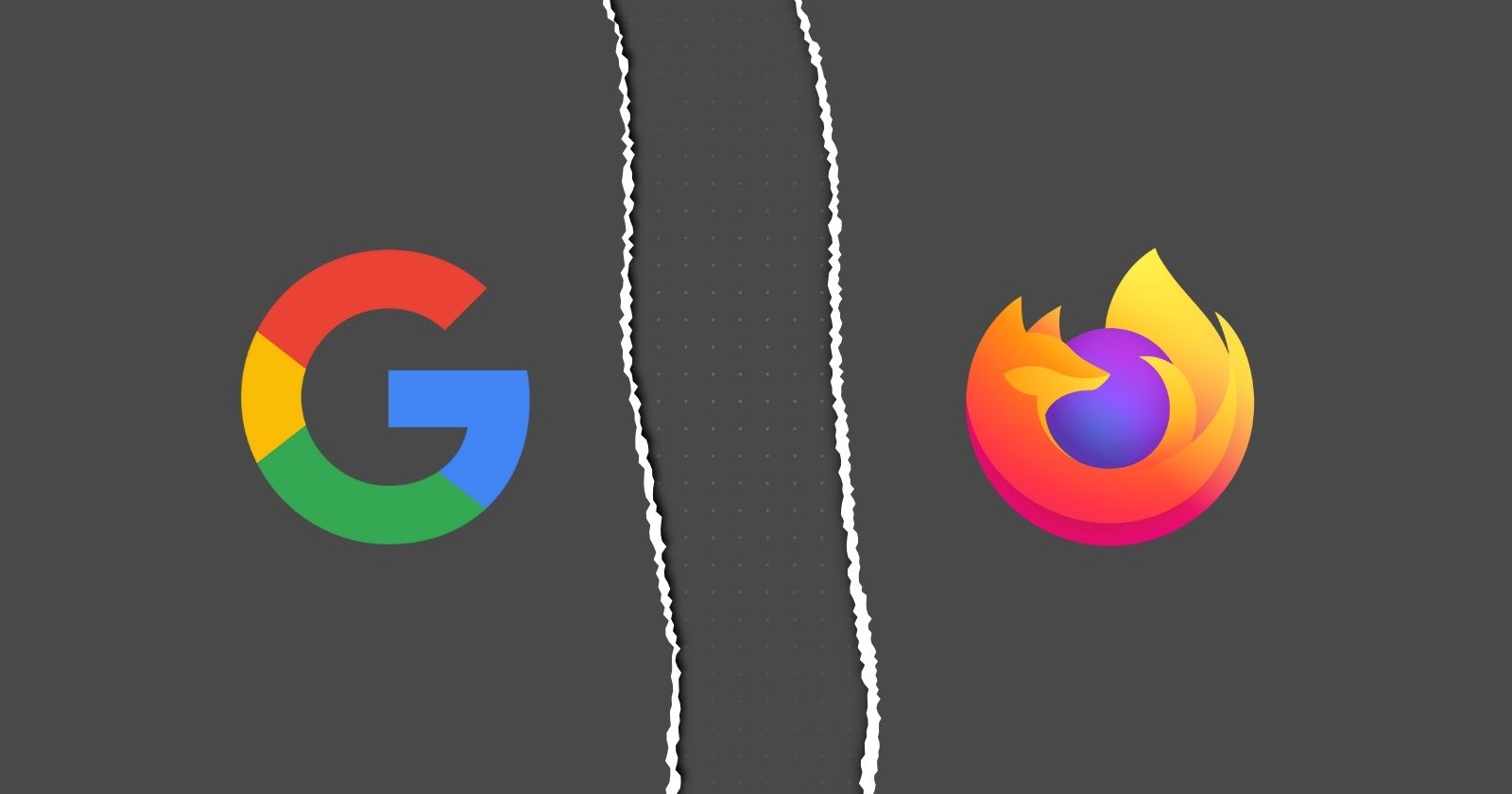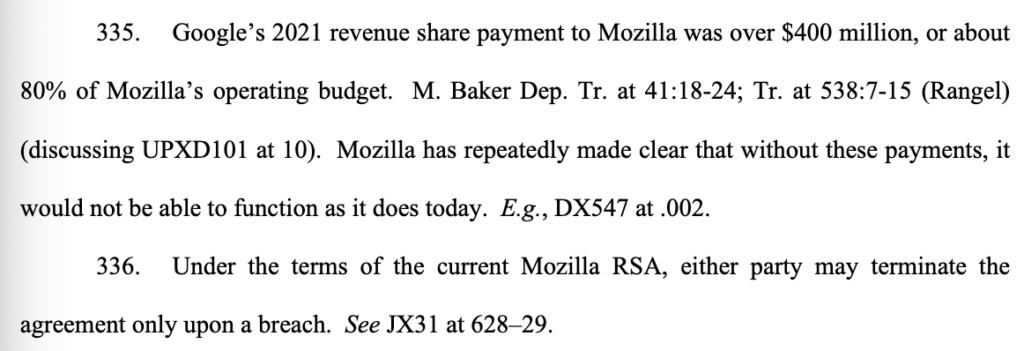The recent ruling against Google in its antitrust case with the U.S. Department of Justice could have significant implications for Mozilla, the nonprofit organization behind the Firefox web browser. As Judge Amit Mehta found Google guilty of maintaining a monopoly in search and advertising markets, Mozilla’s financial stability may be at risk due to its heavy reliance on revenue-sharing agreements with the search giant.
According to court documents, highlighted by @ddayen on X, Google’s 2021 revenue share payment to Mozilla exceeded $400 million, accounting for approximately “80% of Mozilla’s operating budget”. This financial arrangement has been crucial for Mozilla’s survival, with the organization stating that it would not be able to function as it does today without these payments.
The antitrust ruling highlights the exclusionary nature of Google’s contracts with browser makers like Mozilla. Judge Mehta noted that such agreements have disincentivized potential competitors from developing their own search engines or seeking greater flexibility in search offerings. This finding could potentially lead to changes in how Google interacts with its partners, including Mozilla.
Under the current Mozilla Revenue Sharing Agreement (RSA), either party may only terminate the agreement upon a breach. However, if Google is forced to alter its business practices as a result of this ruling, it could impact the terms of such agreements or even lead to their termination.
Mozilla’s precarious position is further underscored by its declining market share in the browser market. While Firefox once held a significant portion of the market, it has since dwindled to less than 3% globally, according to recent data. In contrast, Google’s Chrome browser now dominates with about two-thirds of the market share.
The potential loss or reduction of Google’s payments could trigger an existential crisis for Mozilla. Despite having over $1 billion in cash reserves, the organization has struggled to diversify its revenue streams or replicate the success of Firefox with other projects. This financial cushion may provide some short-term stability, but it’s unclear how long Mozilla could sustain its operations without Google’s support.
What happens next is anyone’s guess, but it’s clear that Mozilla’s in a tight spot. The court still needs to decide how to punish Google, and that could mean anything, even forcing them to change how they do business. Either way, it’s bad news for Mozilla’s bank account.
This whole mess shows just how tangled up everyone is in the tech world. It’s like a giant game of Jenga – pull out one piece, and who knows what might come tumbling down. Mozilla might need to get creative real quick if they want to keep the lights on in a world where Google isn’t calling all the shots.
You can bet Mozilla’s not the only one biting their nails over this. The entire tech industry is on edge, waiting to see how this plays out. Whatever happens, it’s going to shake things up big time for search engines, web browsers, and pretty much everything else online. Of course, it’s likely that Google will appeal the ruling, which could result in the whole process dragging on for months without any clear outcome.
TechIssuesToday primarily focuses on publishing 'breaking' or 'exclusive' tech news. This means, we are usually the first news website on the whole Internet to highlight the topics we cover daily. So far, our stories have been picked up by many mainstream technology publications like The Verge, Macrumors, Forbes, etc. To know more, head here.



